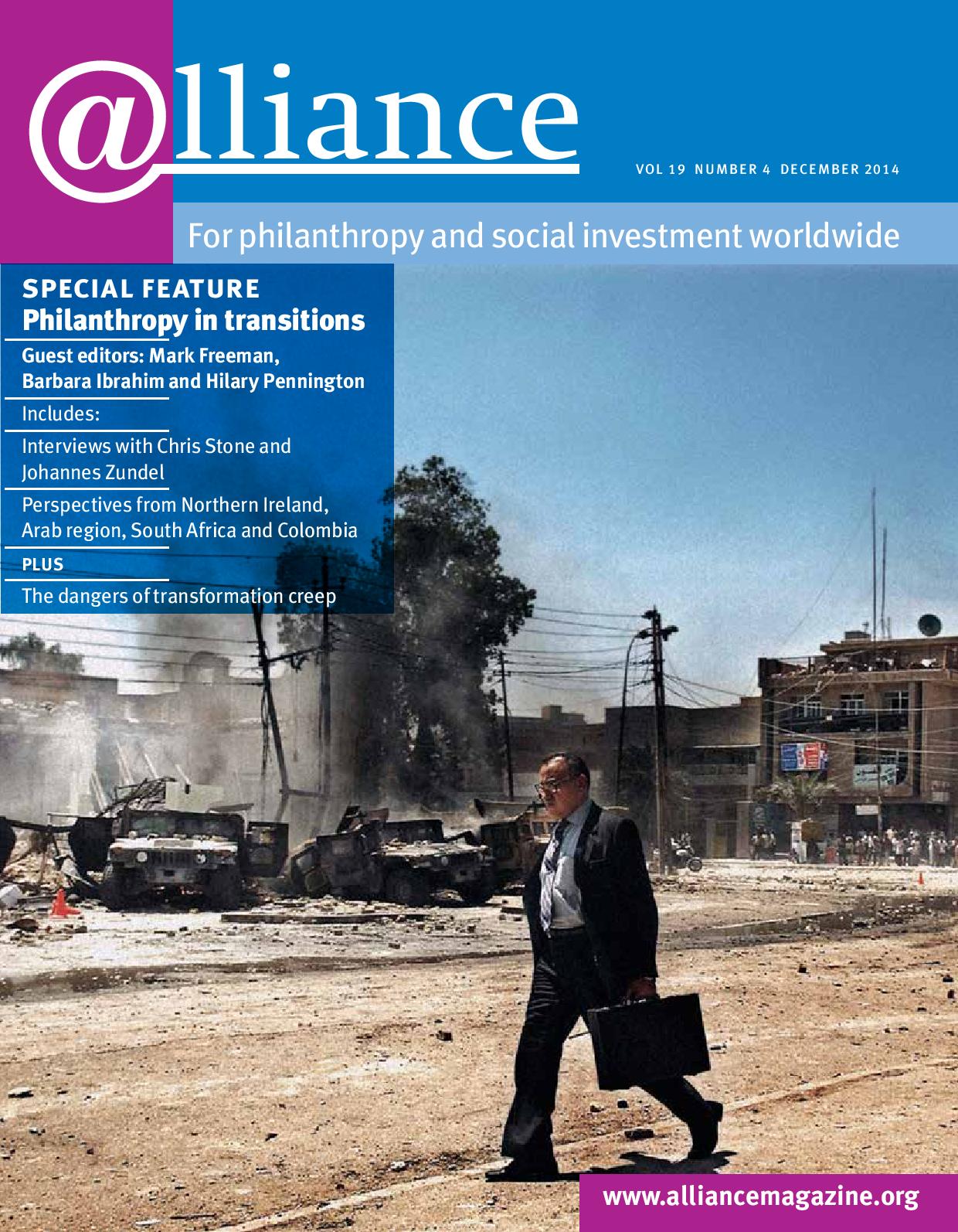When it comes to philanthropy, the answer to this question is a simple one: almost always. This may seem to put me at odds with Jo Andrews’ well-reasoned argument against transparency in all circumstances, but it doesn’t.
Jo is not really talking about philanthropy writ large, but rather a small group of funders with which she has had the privilege to work directly or collaboratively through her leadership of Ariadne (European Funders for Social Change and Human Rights). In her sphere she has indeed been a data warrior. But her sphere is specific and modestly sized: the funders she works with number in the low hundreds, whereas there are over 200,000 public benefit foundations in the US and Europe alone.
The reality is that the vast majority of work done by funders, be it through grants or operating programmes, is in areas that are rarely controversial. In the US, where Foundation Center has access to comprehensive and detailed data on the grants of all foundations – thanks to regulatory oversight that requires baseline transparency – we know that more than 60 per cent of all foundation philanthropy goes to health and education. Survey data from other parts of the world shows similar priorities. Jo rightly points to foundations’ unique independence as precisely what makes them so appropriate for supporting high-risk activities dealing with human rights. But the reality is that the vast majority of funders do not get anywhere near these issues.
I couldn’t agree more that funders who do take risks have a responsibility to minimize potential danger for their grantee partners. This principle is embodied in the Global Philanthropy Data Charter, developed by the Worldwide Initiative for Grantmaker Support (WINGS), which states: ‘Data should be public in principle, but clear policies and procedures should be implemented to ensure an adequate balance between openness and privacy and security.’ This can be easily accomplished by making the recipient of a grant, or even the donor if necessary, appear as ‘anonymous’. But even among funders who do work on human rights issues, many of their grants are not particularly controversial. The Sigrid Rausing Trust sees no need to make its £9.6 million support for Human Rights Watch anonymous. Why should it?
So while I agree with Jo on many of her core points, I am worried that, much like the Hungarian government that she criticizes for using ‘left-leaning’ NGOs as an excuse for a blanket crackdown on foreign funding, foundations will too easily use the exception to justify the rule. Too many times I have heard funders talk about their work being so sensitive that data about it cannot be shared, when in fact the vast majority of their work is not sensitive at all.
As president of Foundation Center – an organization created by foundations that saw transparency as the best way to respond to McCarthy-era hearings accusing them of supporting communism – I believe in the concept very deeply. Transparency is entirely appropriate for organizations that receive some kind of tax benefit in exchange for providing public benefit. It is a valuable means of informing the public while also supporting foundation collaboration and sharing the kind of knowledge and lessons learned that alone can make funding more effective in the future.
As I write, I am also plagued by the nagging feeling that we may be caught up in yesterday’s debate. In an era of Big Data, in which governments either abuse or struggle to protect citizens’ information while those same citizens open up their lives on mobile phones and through Facebook, secrets of any kind are getting harder to hold. The idea that a foundation could fund something that no one would know about seems increasingly unrealistic in our digital world – and perhaps a bit dangerous.
Transparency is inevitable. Being wise and proactive about how philanthropy uses its information is imperative; believing that we can continue to fly beneath the radar is impractical.
Bradford Smith
President, Foundation Center






Comments (0)